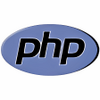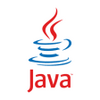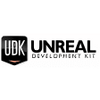Open source CMS which builds web pages out of folders contents
Open source CMS which builds web pages out of folders contents
Vote: (2 votes)
Program license: Free
Developer: Webmediaexplorer
Version: 5.0.9
Works under: Windows
Vote:
Program license
(2 votes)
Free
Developer
Version
Webmediaexplorer
5.0.9
Works under:
Windows
Pros
- Doesn't require external database management
- Real-time website generation from local or server folder structure
- Easy installation and customization due to object-oriented architecture
- Ideal for personal blogs, media libraries, and custom portals
- Direct content management through familiar file and folder systems
Cons
- Depends on Apache and requires basic PHP knowledge
- May lack some features found in more complex CMS platforms with external databases
Revolutionary Content Management with Local Folders
Webmedia Explorer stands out in the realm of content management systems (CMS) due to its innovative approach to data handling. While traditional CMS platforms rely heavily on external database configurations, Webmedia Explorer takes the path less traveled by utilizing the local folder structure of your system as the database.
Intuitive Website Generation
Webmedia Explorer harnesses the power of your PC's local hard drive or a remote server's folder architecture to generate a dynamic website. This real-time creation process is backed by a formidable data fetching and rendering system. The convenience Webmedia Explorer brings to the table is particularly notable for users looking to establish a personal blog, an online media library, or a custom portal. The intelligent categorization parallels the organization of your actual folders, further simplified by an efficient tagging system. Essentially, Webmedia Explorer eliminates the hassles typically associated with complex database setups.
User-Friendly Installation
Arguably, the installation process of Webmedia Explorer could be one of the most user-friendly among CMS options. Its simplicity in installation is matched by the ease with which it can be customized, thanks to its object-oriented design. However, it is worth noting that while Webmedia Explorer bypasses the need for a third-party database system, it does maintain reliance on an Apache server environment. Consequently, some basic understanding and configuration of Apache and PHP are prerequisites to make the most of what Webmedia Explorer can offer.
Adaptable and Manageable
Whether you're a seasoned developer or a newcomer to the world of web management, Webmedia Explorer's interface and operational model are approachable. The CMS's design promotes manageability and adaptability, allowing users to expand and modify their websites with minimal coding acumen. Its structure, centered around leveraging directories and files already present on the system, makes it exceptionally responsive to content changes and updates.
Technical Considerations
On the technical side, potential users must acknowledge that the CMS is aligned with Apache and PHP. While these are common and well-supported technologies, some level of familiarity is required. For those willing to undertake these moderate technical steps, the advantages of a database-free CMS platform like Webmedia Explorer are substantial.
Conclusion
Webmedia Explorer represents a forward-thinking solution for content management. Its philosophy of drawing upon local folders as a database simplifies the website creation and management processes significantly. Although the reliance on Apache and PHP may command a slight learning curve, the trade-off is a highly accessible CMS that paves the way for smooth personal and professional web projects without the bane of complex external database configurations.
Pros
- Doesn't require external database management
- Real-time website generation from local or server folder structure
- Easy installation and customization due to object-oriented architecture
- Ideal for personal blogs, media libraries, and custom portals
- Direct content management through familiar file and folder systems
Cons
- Depends on Apache and requires basic PHP knowledge
- May lack some features found in more complex CMS platforms with external databases



